Developer Love – Relic Entertainment
by Mark
 This is a little song I like to call Developer Love *strums guitar*. We all have our favourite developers; the guys we would happily buy ‘Duke Nukem Forever And Ever II’ from if we found out they were working on it. It might be a powerhouse like Blizzard or Valve, the role playing gods of BioWare and Bethesda or maybe even the indie guys like Popcap or Mojang. So, in this article I show a little love for my favourite games developer – Relic Entertainment.
This is a little song I like to call Developer Love *strums guitar*. We all have our favourite developers; the guys we would happily buy ‘Duke Nukem Forever And Ever II’ from if we found out they were working on it. It might be a powerhouse like Blizzard or Valve, the role playing gods of BioWare and Bethesda or maybe even the indie guys like Popcap or Mojang. So, in this article I show a little love for my favourite games developer – Relic Entertainment.
In recent years, Relic have been known as THQ’s go-to-guys for anything relating to the Games Workshop/Warhammer 40K intellectual property. I know that some of you will be thinking, “Oh, Mark is mad about those tiny plastic dolls and now he’s writing an article about Relic, blah blah….” Well, first of all, they are ‘table top gaming miniatures’ you dick and second, before all the Warhammer stuff, Relic were producing RTS classics and has since been at the cutting edge of the genre with titles such as the sci-fi strategy Homeworld and later Company of Heroes, the greatest World War II strategy since the real thing.
In Homeworld and its sequel, the aptly named, Homeworld 2, Relic managed to capture that feeling of being the leader of a solitary unsupported force – think Captain Janeway in Star Trek Voyager, or the folk from Battlestar Galactica . You had your mother ship, you could mine for resources and produce support vessels, but that mother ship wasn’t armed, resources were limited per map, and when forces were destroyed they would take a while to rebuild. These forces would also carry over from mission to mission meaning that if you took particularly heavy losses in one map, the difficulty throughout the rest of the game would increase dramatically. Relic broke ground in this type of real time strategy, a nice alternative to the standard of the day, and while games like Command and Conquer focused on base building, creating defences and amassing soldiers and vehicles to swarm over your opponent, Homeworld’s focus was on a gripping story, with the player fighting for survival alone in the galaxy, and about playing the real time strategy, strategically.
Relic then turned its attention to the Games Workshop IP – Warhammer 40K – and the first of which, Dawn of War (DoW), was another ground breaking game, not just for the genre but even in terms of the IP. Previous Games Workshop titles had been based around the fantasy staples – orks and goblins versus cavalry and mages. Most were presented in a distant isometric view similar in style to the early Total War games. Those were just the fantasy games though; the only strategy game that had been out for the 40k IP was a series of turn-based hex games that looked terrible. Don’t get me wrong, I loved all of them (bit of a fanboi), but Relic raised the bar and created the first credible 40k video game experience. Base building was back, but in a very limited way; units suddenly became upgradeable, leaning to the idea that a Space Marine was a very adaptable soldier; units could be upgraded with various heavy weapons, making them more effective in battle, and the number of units was reduced dramatically compared to other games in the genre, so in Dawn of War it wasn’t unusual to win a battle with only a handful of squads.
They also introduced new ways of gathering resources through capture points, so no more harvesters and mineral fields for this gamer. Points had to be captured strategically, and where most gamers would rush in and try to capture them all, they would ultimately find themselves over-stretched and easily counter-attacked. All of these things combined made the game unique among is peers. Oh, and there was also a lot of blood. The first time I saw Dawn of War at the tender age of sixteen, and the level of violence was impressive. Units were getting into close combat and battling each other with rather large knives, and Dreadnoughts (large metal war machine/coffins) were picking up orks and squishing them. This all showed that Relic actually got the IP and understood what the universe was all about. In the 44th Millennium there is only war, and war is a bloody business.
In a complete stroke of genius, the company then produced a number of expansion packs for the core game, adding new races and new single player content while maintaining the players’ ability to drop in and out of the multiplayer, none of which was tied down to whatever expansion packs you had. In the later expansions, we were given the meta map style of the single player game which, while removing a detailed storyline, allowed for a huge amount of replay. This drove the game on, while requiring (I imagine) less work than a full game, and allowed Relic to produce possibly the best game I’ve ever played.
Following DoW, Relic released Company of Heroes – a World War II strategy game based around the D-Day landings and beyond. At the time, for an RTS, it was visually stunning while still bringing in the grey and brown tones you would expect from a World War II game. To me, where it separated itself from the regular RTS pack was an addition of two very simple game mechanics: the cover system and having units drop weapons once they were dead. With the addition of cover, the landscape suddenly became more important. Enemies could be flanked to real effect on the battle, attacks could be planned such as hiding troops in houses or behind tree lines to set up ambushes, and the number of squads was limited, as per Dawn of War, so players suddenly had to play tactically. If you threw your troops at enemy guns, they would soon be dead and you simply wouldn’t be able to rebuild in time.
Added to this was the mechanic where, if you took out an enemy machine gun nest, your infantry could run up and pick up the machine gun, becoming a machine gun team. The basic unit in the game could be upgraded to a machine gun squad, pick up heavy anti-tank weapons or even man a large anti-tank gun, making the units so much more important than with previous games in the genre.
The war strategy game suddenly became less about building up forces and resources as quickly as possible, and became real. In modern war you don’t always have access to two hundred thousand troops to charge in to battle, and this was finally reflected in Company of Heroes. If you haven’t played it, jump on Steam when you have finished this and get it bought. It will change your gaming life for sure.
Using lessons learned from Company of Heroes, Relic created a sequel to Dawn of War, surprisingly titled Dawn of War 2. I’m not going to go into great detail about Dawn of War 2 in this article because, to be honest, I could write a dozen “I Heart…” style articles on the game. With it, Relic took systems developed in Company of Heroes, boiled the RTS elements down into a tactical squad-based gameplay, refined the meta game mechanic from the Dawn of War expansions, added a dash of roleplay, a sprinkle of co-op and stuck it in the Warhammer 40K universe with all the blood, gore, and glorious battle you can imagine. The innovative and ground-breaking mechanics were nestled amazingly in this engaging storyline with believable (for giant genetically-enhanced super soldiers) characters that you begin to connect with. I loved this game and played it again and again, perhaps a little too much.
The expansion Chaos Rising brought another full single player storyline, which used your characters from the original game. Sadly, however, they let me down with the third expansion, which added a number of new playable races in to the mix. While most were expecting another expansion of similar storytelling quality as the previous games, we were left with a large meta game with interchangeable voice-over performances across the same mission maps, all of which was later fleshed out by a huge number of DLC packs containing additional skins and whatnot. Luckily, it did contain the combined might of every Dawn of War game since the beginning in its multiplayer, and this somewhat saved the expansion in the long run.
More recently, Relic has released Space Marine, another game set in the Warhammer 40k universe. As a major shift in direction from the RTS games of the past, many thought that Relic taking on this third person shooter was a bit of a gamble. Regardless, Space Marine delivers a bone-crunching third person perspective on the life of a Space Marine as he goes about the day to day crushing of his enemies. What surprised me most was the level of quality delivered by Relic in this title, especially when you consider that it was their first foray into the third person genre. The storyline was there, the gore and violence expected from the IP was there, but what made it stand out was the difference between this and other games in the genre – the lack of a cover system. Let’s face it, space marines are giant genetically-engineered super soldiers encased in a full suit of highly-advanced super space armour that puts Master Chief to shame, they don’t need to take cover.
Don’t get me wrong, there were some issues. The only way to regain health was by doing a finisher, and there only seemed to be about five finishing animations, which was a bit of an oversight if you ask me. Mark Strong provided the voice for the main character, giving an amazing performance that really drove the character home but other characters, such as his whiney sidekick, lacked the same impact. Then there was the sad, buggy disappointment of the multiplayer. Still, I think they proved that the folk over at Epic are not the only kids in town that can make a decent third person shooter and I look forward to a bigger and better sequel.
So there you go. Relic Entertainment have been innovating and driving forward the real time strategy genre for years. They should be held in the same light as Westwood Studios with C&C or Blizzard with Starcraft, yet I feel at times that Relic are seen merely as those guys that make the Warhammer games, with the attitude of “Oh 40k is rubbish, so I won’t play it”. If you are one of those people, you’re an idiot and you are missing out on classics. Hopefully this has shown that, while there have been some issues, maybe even a flop here or there (no one mention The Outfit), Relic have been innovators in the RTS genre and how, from their golden life-giving throne on Holy Terra – Vancouver – they continue to be the greatest of the RTS developers.
Last five articles by Mark
- I Have A Problem
- Total War: Warhammer - Review
- Rainbow Six Siege - Review
- Mordheim: City of the Damned - Review
- Star Wars: Battlefront - Review














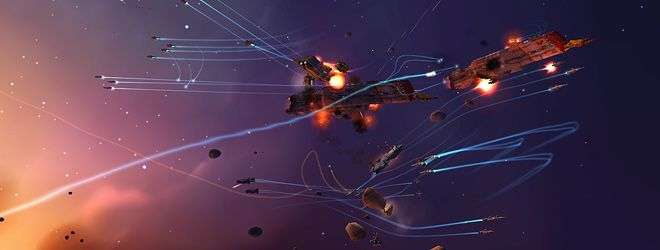
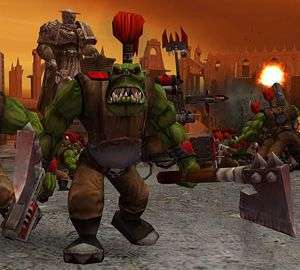
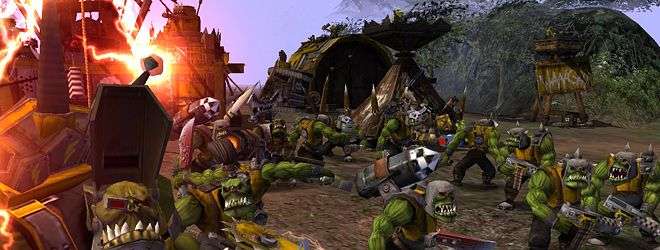
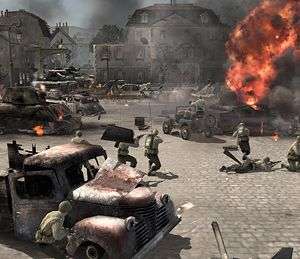

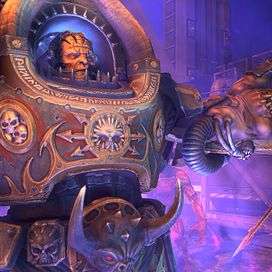
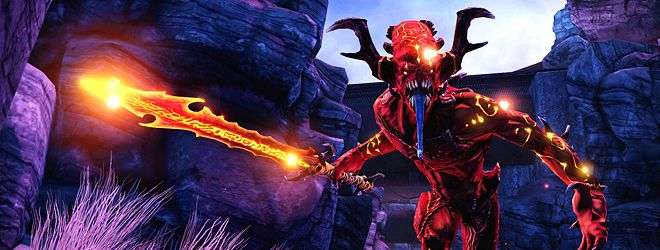





You see what you’ve done here? You’ve told me that there are RTS games out there which were about at the time of the original C&C series… and you’ve said they were ground-breaking. This is annoying. Now I have to go out and actually PLAY them, and it’s all thanks to you. I’d already set out my “to-play” list for this year, but I’m absolutely going to give Company of Heroes a whirl. It better be good, or I’m comin’ after you!!
I adored this piece. Probably on two levels… the first is the passion, because it shines through magnificently. The second is that I knew absolutely none of this, so I was learning the entire time. I feel bad that I knew very little of Relic, but hopefully I can change that. Stellar piece from you dood.
I loved Homeworld, such a great game. I never got around to Homeworld 2 though, I think it got swallowed up by the C&C game of the time. I’ve a similar tale about Company of Heroes. I own it but have not played it properly. Will need to rectify that. I think the problem with Relic now is that they’ve been typecast with 40k games. While I enjoy I hope the odd 40k adventure I really hope they get to do another Homeworld sometime. That would be amazing. Additionally with THQ being one of the “smaller” publishers, Relic dont enjoy the exposure that other developers do which I see as a major stumbling block in today’s hype filled media world.
Great article Mark, I enjoyed reading this.
Im still playing the original DOW today (currently playing the original campaign on insane for probably the 50th time) its without doubt my all time fave game.
I feel like i know the units and weapons personally, spent months making maps (check out Omah and Utah maps on DOW files)
Its set the standard for RTS as far as I’m concerned, the attention to detail of each unit and the way the game is balanced is unmatched. Still don’t think a better RTS has been made since (yes i own and love starcraft!).
MP was bliss, sneaking scouts behind an opponents base was so exciting, shame the community has all but disappeared.
Loved CoH and its expansions, and DoW2 but still the original has my heart
Honestly think ill be playing this game for as long as windows will run it.
I was a big fan of the original Dawn of War, and I have a lot of respect for Relic for all they’ve done for the genre. A tip of the hat to them, and to you for your passion and writing